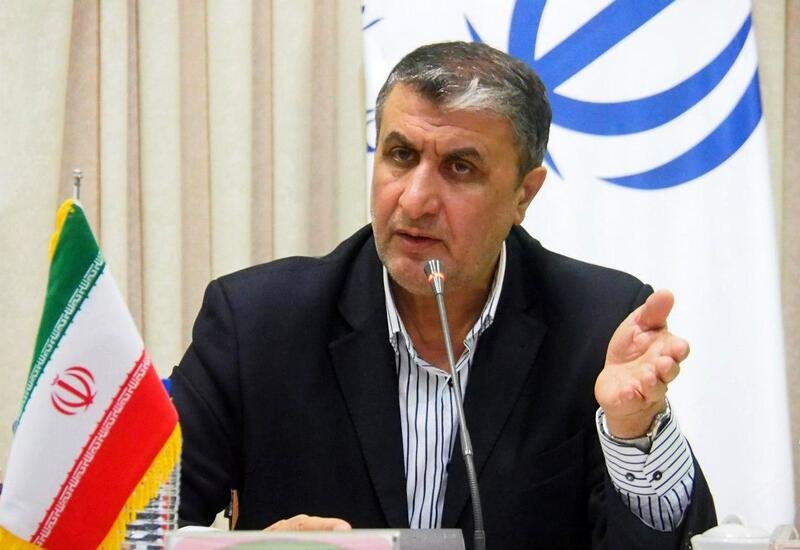BAKU, Azerbaijan, December 14. Iran has not hindered the inspections of the International Atomic Energy Agency (IAEA) so far and will not do so in the future, Iranian Vice President Mohammad Eslami told reporters on the sidelines of an event in Tehran on December 14 dedicated to the presentation of new achievements in the nuclear field, Trend reports.
According to him, until now the International Atomic Energy Agency has always carried out its monitoring within the framework of safeguards and the NPT agreement.
Eslami noted that Iran is taking steps within the framework of IAEA rules, and if the scope of action is increased from three to five sections, it is only natural that there will be stronger monitoring in this size as well. However, some parties intend to generate fear against Iran's nuclear program.
Commenting on whether a new format will be created to resolve the two issues in limbo between Iran and the IAEA after the approval of the anti-Iran resolution at the board of directors of the International Atomic Energy Agency, Iran's vice president said that Tehran continues to cooperate within the framework of the statement agreed upon between Iran and the IAEA.
To note, last March (2023), an agreement was achieved between Iran and the IAEA, and a statement on the agreement was issued. According to the agreement, Iran's cooperation with the IAEA is within the framework of the Convention on the Non-Proliferation of Nuclear Weapons (NPT) and safeguards, and the parties are to cooperate on allegations of the existence of enriched uranium substances in connection with Iran's nuclear program.
Meanwhile, in January 2016, Iran and the P5+1 group (the US, Russia, China, the UK, France, and Germany) implemented the Comprehensive Joint Plan of Action concerning Iran’s nuclear program.
In May 2018, the US announced its withdrawal from the deal and reimposed sanctions on Iran.
By the end of 2020, the Iranian parliament decided to pursue a strategic plan in the nuclear sector to counter the sanctions, leading to a suspension of additional steps and the Additional Protocol as per the nuclear agreement.
Consequently, the International Atomic Energy Agency (IAEA) faced a reduction in monitoring capabilities by 20-30 percent.







